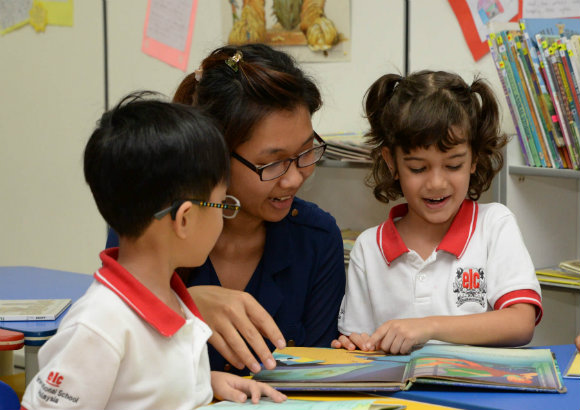Why Teach?
Published by SchoolAdvisor | Nov 28, 2018You do not have to look far to see that education is once again in the headlines in Malaysia. The merits, or lack of them, of the current issues in the media spotlight are not the topic of this article though. However, it is worth considering why media attention does have a tendency to overlook those that some might see as the “foot soldiers” caught up in the storm that is education today. Who are these foot soldiers? Well the teachers of course and wouldn’t they have the best answers?

Ask yourself how many of the last few articles you read on education quoted or referenced a teacher. Remarkable is it not, that when writing on any aspect of education you would not seek the opinion of an “expert”. Clearly though politicians, law makers and highly opinionated members of the public make for better reading. Who wants to listen to a teacher? What can we do about this? How can we restore the prestige that was once associated with being a teacher? How can we make teaching a noble profession again?
The lack of qualified teachers is not an issue unique to Malaysia; across the world we are seeing a shortage of qualified teachers. Many schools have now had to start looking at degree holders with no teaching experience or educational qualifications. The net is being cast far and wide to try and recruit a new generation of teachers to cope with the increasing number of students. As Mr. Loo Chuan Kian, the CAIE Exams Officer at elc International School points out “we need to find teachers with good subject knowledge. This matters not only because at the top of the ability range you need to be able to stretch pupils but also because teachers with good knowledge tend to make lessons for younger children more interesting”. Clearly then subject knowledge is a prerequisite for any discipline of teaching but is that enough?

Mrs. Sheela Raghu, the Principal at elc, was quick to point out that “sound subject knowledge can only go so far. A teacher has to have the tools for being able to deliver a subject and for that she would need to have an awareness of the methodology of teaching and learning”. Generally learning is now more student-centred and activity based rather than didactic. Essentially what we see now is less “chalk and talk”, teachers need to have the tools to engage students and get them to take charge of their own learning process.
Very often now the main challenge is to keep students motivated and focused. This requires a significant amount of skill on the part of the teacher and so whilst we could appoint candidates with sound subject knowledge, but without teaching qualifications, it is essential that they immediately undertake training to supply them the skills required to be a successful teacher. Ideally candidates would be appointed as Trainees and undertake at least a diploma that included the psychology and pedagogy of education.

Whilst agreeing with all of the above Mrs. Margaret Kaloo, the founder of elc International School, stresses the need for every teacher to display some measure of compassion, empathy and mindfulness. Teachers need to be able to understand the emotions of others (empathy), have a desire to help others (compassion) and an awareness of the present situation they are in (mindfulness). With these values a teacher can utilize their skills and knowledge and become outstanding. When you have an outstanding teacher, there is no doubt that the work being done is truly noble.
So how do we get more young people today to be interested in teaching? Well experienced teachers such as Mrs. Chong Soh Nee, the Head of Secondary Division in elc feels “there is no one way to make teaching a desirable option for the young people of today, but by having great role models while they are at school, we could inspire them to want to teach in the future”. Many younger teachers will talk about increasing pay scales to entice a new generation to the profession, but when you talk to seasoned educationalists about why they remain teachers, wages are seldom mentioned. The single greatest reason cited time and again is the intrinsic reward of seeing students succeed, particularly the difficult ones.
As Mrs. Chong pointed out there is clearly no one solution, and taking a page out of Mrs. Kaloo’s book, we are going to have to remain “mindful” and aware of our current surroundings. We need to focus on the now, because experience has shown that sometimes when we focus on the future too much we can be paralysed into inaction. “Today” we need to focus on creating a new generation of inspired teachers with the desire to shape the next generation. If we manage that tomorrow looks good!
~ for more information about a career in teaching please email recruitment@elc.edu.my

